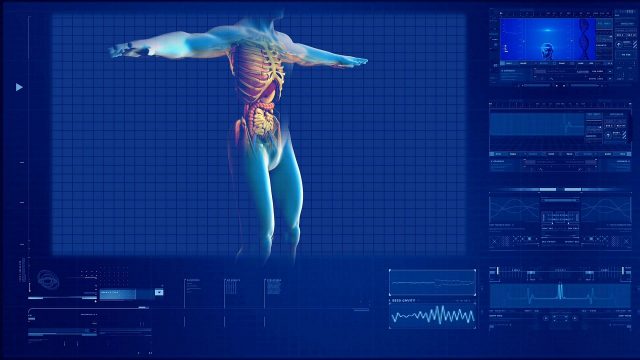By Indu Tyagi
About Indu
Indu Tyagi carries more than 13 years of experience in healthcare market research & consulting. She is a biomedical engineer with a specialization in neurophysiology & has always been involved in studying & forecasting health tech markets; she has played a vital role in designing strategies & roadmaps for many organizations.
Her forte is in forecasting advancements & investments in new technologies in congruence with moving macro, micro & trade economics. She feels health diagnostics need a lot of attention for creating non-invasive & effective methods. The combination of ongoing technologies with the healthcare industry has the potential to become super giants in terms of business along with service to humanity.
Have you ever imagined getting healthcare treatments through the Metaverse?
I doubt this fact ever came to your mind, as it seems absurd. The Metaverse is becoming a common word in the technology world nowadays, and people are well aware of it.
Many business people are utilizing the Metaverse as a test for their business purposes. Still… imagining the Metaverse in healthcare facilities seems distant, even considering that technology has evolved significantly over the past few years.
The Metaverse is an asset for many organizations and business professionals, as they utilize this high-end virtual reality platform for carrying out their business proceedings, including virtual trade fairs and exhibitions, virtual conferences and summits, virtual product launch events, etc.
Still, healthcare facilities in the Metaverse sound a little weird, considering that you are in a virtual reality world and providing healthcare facilities through such a digital world; all this seemed to be an imaginary task.
But with the evolution of technology, the medical and healthcare industry has also evolved, making it possible to have healthcare facilities through such high-end Metaverses. So, let us know how this has been made possible in the other section.
Healthcare in the Metaverse
Several healthcare institutes and hospital chains globally are looking forward to implementing the Metaverse, owing to the reports that predict the Metaverse to be very useful for the medical and healthcare industry.
The advent of the Metaverse represents the coming together of three significant technical developments that may have separate but interrelated effects on healthcare. Combined, they might produce new avenues for providing care, which could significantly enhance patient outcomes while reducing costs.
These three significant technical developments are Telepresence, digital twinning, and blockchain. Let us understand these terms in detail.
Telepresence
Also called Telemedicine in the medical industry is a provision of medicine as a remote service. Telepresence or Telemedicine gained popularity during the hard times of the Covid-19 pandemic. Earlier, only 43% of medical and healthcare institutes had the facilities to provide remote treatments to their patients, which has risen to over 95%.
Numerous minor ailments that make up most workloads of doctors and nurses can be more swiftly and efficiently diagnosed over the phone or via video call, especially for routine consultations that do not require a physical examination or can be carried out visually. In the Metaverse, this will undoubtedly remain the case.
Virtual reality offers a new realm of possibilities because it is a critical technology that allows the next-level immersion that partially qualifies a platform or application as part of the Metaverse. Patients are no longer restricted in their choice of healthcare providers due to distance, with telemedicine consultations, especially those conducted via virtual reality.
A simple headset connection makes it feel like you’re in the same room together, even when your specialist doctor is far from your location. You can get your scans and tests done at a local clinic and then send the results to your doctor, no matter where they are located. It’s constructive in countries like China, which has a severe scarcity of medical experts, and for patients in outlying areas who would have to travel long distances to see a doctor.
Digital Twinning
Digital twins are simulations of physical objects, processes, or entire systems built from the data collected from the actual world and used to understand their analogs better. Today, it is possible that the patient’s digital doppelganger could be themselves in the Metaverse, which can be easier for the doctors to examine.
According to reports published, digital twins will eventually become test dummies for individuals. Healthcare professionals will extensively use them to analyze and predict everything from the patient’s recovery from surgery to the reactions of a particular medicine to their health.
The Healthcare Blockchain
Blockchain is commonly thought of as the technology behind cryptocurrencies like Bitcoin, which is a collection of decentralized, encrypted databases that provide the secure storage and movement of data without the possibility of tampering by anybody other than the data’s original creator. The most apparent application of blockchains is the safekeeping of our priceless medical records.
Currently, data is frequently exchanged between numerous companies in a way that is both inefficient and opaque to the owners of that data. Records are easily stolen because they are typically kept on centralized servers, which means that it is prone to some malicious activities.
And because the market value of a single health record is estimated to be between USD 70 and USD 100 on the dark web, the blockchain is considered a vital part of this industry. Now, owing to these facts, by merging these fundamental technologies in the virtual world or Metaverse, medical practitioners can provide more unified treatment plans, eliminating the fragmentation that plagues the current healthcare system.
It would be much easier to determine what’s causing a patient’s health problems if doctors could promptly share relevant patient data. Following a patient’s activities in the Metaverse would significantly improve the efficiency with which important factors like compliance could be monitored, ultimately leading to better health care
Virtual Hospitals
Another vision for the Metaverse in healthcare is virtual hospitals. Virtual hospitals are considered a critical component for the healthcare sector shortly, where Metaverse will be taking over the industry.
Even many healthcare giants globally are working on similar products like virtual hospitals considering the advent of Metaverse in the medical and healthcare industry. In Simple words, we can say that a virtual reality hospital will be a virtual replica of a physical healthcare facility that patients can visit with the help of a VR headset, and initial treatments will center on psychotherapy and physical therapy.
Physiotherapy will rely on computer vision, using cameras to examine a patient’s range of motion in injured joints and track their improvement over time. With the help of VR and AR, medical practitioners would be able to diagnose and provide better feedback to their patients from remote locations.
For example, if you have a shoulder problem and your range of motion increases by 3%, you probably won’t notice it. But with VR and AR, your doctor can examine that motion and treat you with the necessary medications.
Now, after discussing all the relevance of the Metaverse in the healthcare industry, let us take a quick overview of the global market. And with quite a surprise to many industry experts, the global market for healthcare in Metaverse is predicted to register a CAGR of 48.3% and expected to earn a whopping revenue of USD 5373 million till the forecast period of 2024 to 2030.
These figures show that the Metaverse is rapidly taking over the medical and healthcare industry and helping it evolve to provide people with the best-in-class healthcare facilities, even in remote locations.
About the Writer
Indu Tyagi carries more than 13 years of experience in healthcare market research & consulting. She is a biomedical engineer with a specialization in neurophysiology & has always been involved in studying & forecasting health tech markets; she has played a vital role in designing strategies & roadmaps for many organizations.
Her forte is in forecasting advancements & investments in new technologies in congruence with moving macro, micro & trade economics. She feels health diagnostics need a lot of attention for creating non-invasive & effective methods. The combination of ongoing technologies with the healthcare industry has the potential to become super giants in terms of business along with service to humanity.











